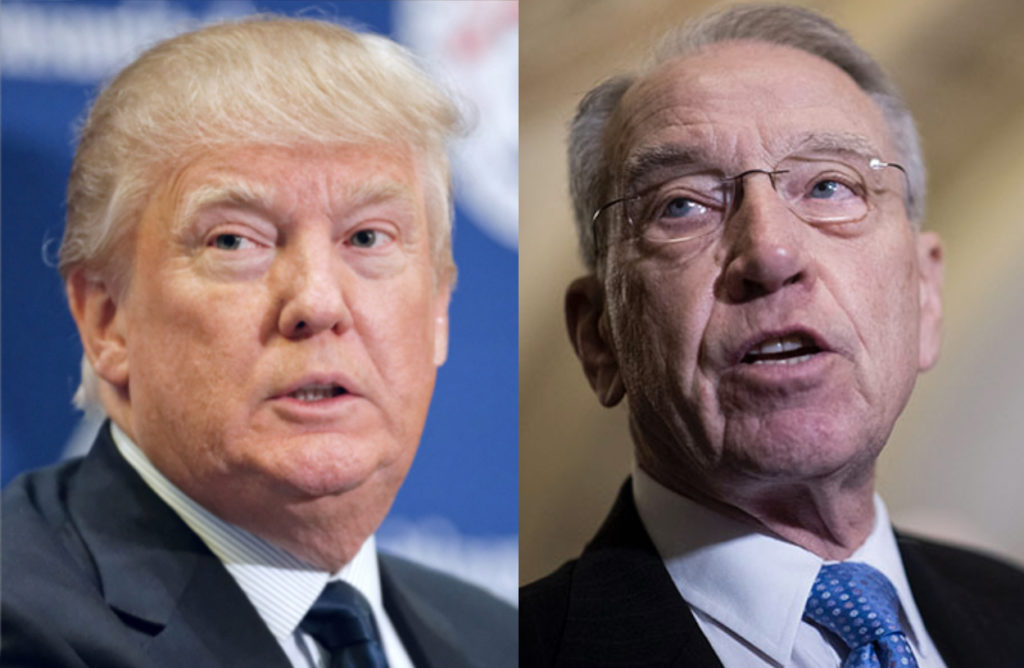The real reason Chuck Grassley is suddenly screwing with Robert Mueller

Thursday, the Senate will vote on proposed legislation to protect the current Special Counsel, Robert Mueller, as well as future special counsels that may be appointed. Senator Chuck Grassley and Senator Diane Feinstein have exchanged warnings about the legislation, with Feinstein warning Grassley that any amendments could not dilute the protections. Grassley has been hiding his amendment until now, and we now know why he has been so secretive.
Grassley’s amendment would require Mueller (and any future special counsel) and the Department of Justice to report to Congress when “any change made to the specific nature or scope” was initiated. Senator Chris Coons, one of the sponsors of the proposed bill, has reportedly stated, “Chairman Grassley has long been a champion of transparency and a defender of whistleblowers, and in that spirit, I’m working with him to try and make sure that this ends up being a friendly amendment.”
There is a chance that the bill with this amendment will not be supported by the Democrats, which would kill the bill. The Democrats on the Senate Judiciary Committee should reject Grassley’s amendment. Given the continued disclosures and leaks of materials by Congress of investigation materials, it is a recipe for disaster and does not seem workable. Further, requiring the Department of Justice to keep Congress apprised of every development, including the hiring of a special counsel itself, is contrary to what is normal for a prosecutor investigating potential crimes.
Imagine a situation where the party in power in Congress decides to make public certain information that is not for public consumption. Imagine if you will a party pressuring a special counsel through the Department of Justice to discontinue an investigation or curtail certain inquiries and lines of investigation. Likely not hard to do.
Now imagine a bill that gives Congress express powers to do so and requires the Department of Justice to report to Congress. That is this amendment, and for those reasons Senate Judiciary Committee members should just say no to this amendment. Not much is at risk, given that Senate Majority Leader Mitch McConnell has said he decides what bills get to the Senate floor, and he sees no need for any protection.

Daniel is a lawyer writing and teaching about SCOTUS, and is the author of the book “The Chief Justices” about the SCOTUS as seen through the center seat.
